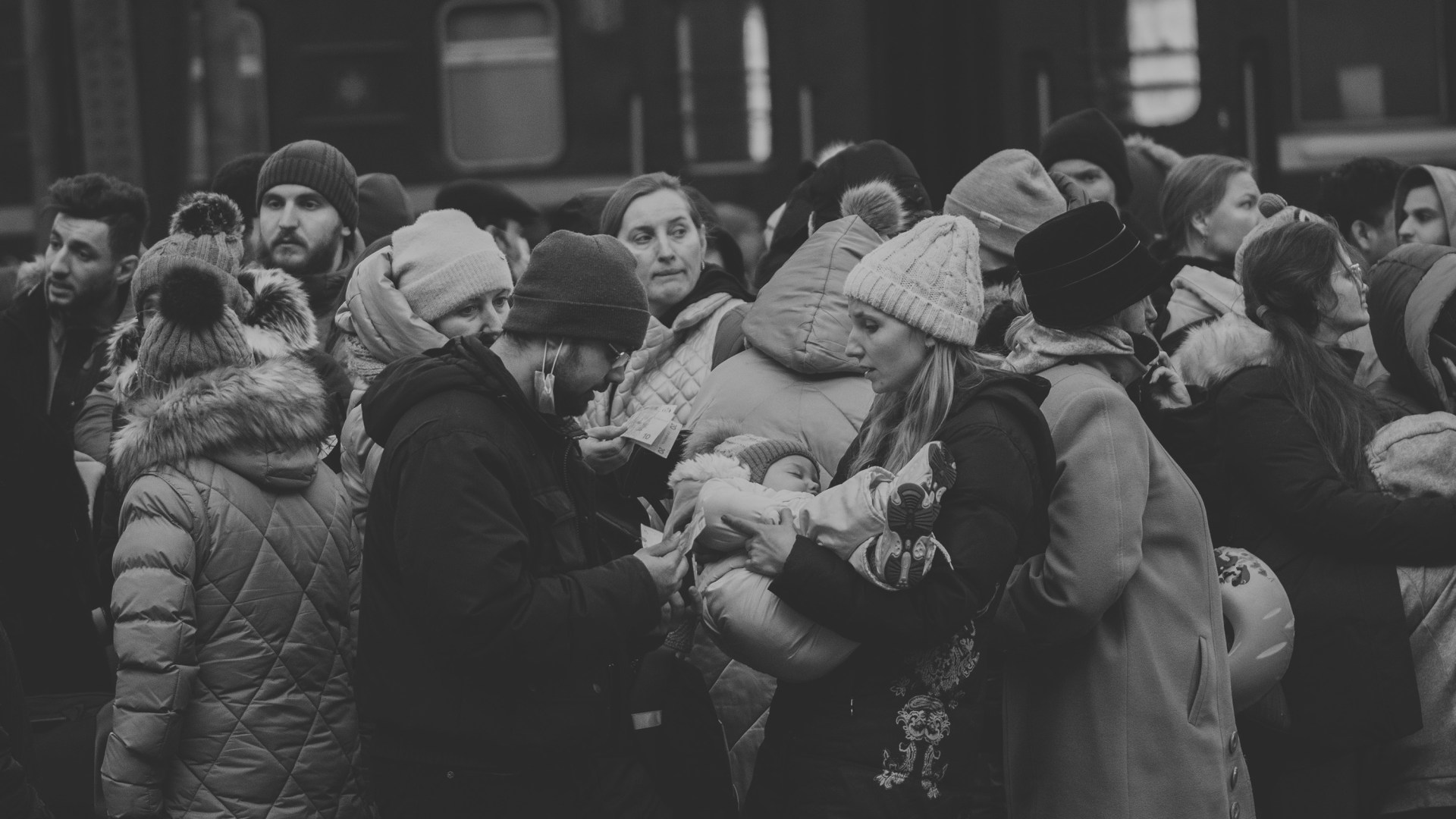Sophia Lee and Joel Carillet both hoped to beat the Russians to Ukraine.
Carillet, an East Tennessee–based photojournalist who had previously lived in Ukraine, managed to pull it off. He landed in Kyiv 10 days before missiles began falling.
Lee, a newly hired writer at CT, planned to travel there on her debut assignment for the magazine. But by the time she started in March, the incursion was well underway; she flew instead to Poland to document Ukrainian refugees.
The two met one afternoon at a hotel in Warsaw to begin reporting this month’s cover story. Carillet struck Lee as nice, really quiet; she liked him immediately. Lee seemed to Carillet a little reserved, similar to himself. She had an impressive work ethic.
But who can really feel, when they first shake someone’s hand, how much weight a person is carrying? Journalists don’t bring themselves to a story tabula rasa, minds undivided and hearts unburdened.
Carillet had already spent weeks photographing the heartbreaking outflow of displaced people. “I think I cried at some point almost every day,” he said. Then there was his mother, a former missionary to Ukraine who was declining in hospice care back in the US. (Tragically, she passed away while he was still in Europe.)
Lee was seven months pregnant. She was days into a new job, and she and her husband were still grieving the sudden death of her mother-in-law.
Naturally, Carillet and Lee reported on stories of Christian hope and joy in the midst of cruelty and suffering. They wanted those stories as much for themselves as for CT’s readers. But they also encountered people with a different variety of faith, people who had given up demanding quick fixes to their desperate situations. These people exhibited Job-like confidence in God’s faithfulness and presence. Their faith was “a way of living,” Lee wrote in an online essay for CT, “like breathing, even when those breaths sometimes rasp out in gasps.”
It was among such people that Carillet and Lee stumbled into unforeseen graces directed their way: a kind word, a sudden embrace, a refugee’s prayer of blessing over a journalist. The beauty of such acts was magnified “precisely because it was set against the ugliness of this war,” Carillet said. “That beauty leaves a mark on you.”
That would be a worthy prayer for everything we publish at CT: that against the ugliness of hard truths, we might also see great and contrasting beauty.
Andy Olsen is print managing editor of Christianity Today. Follow him on Twitter @AndyROlsen.












